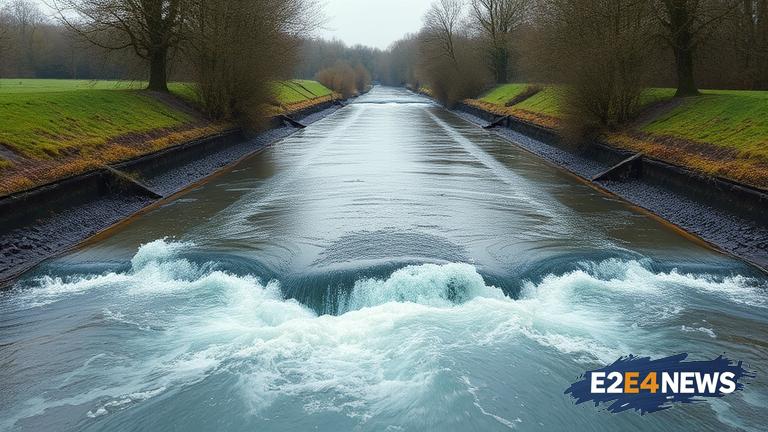A recent report has sparked controversy in the UK water industry by calling for the abolition of OFWAT, the regulator responsible for overseeing the sector. The report, which was compiled by a team of experts, argues that OFWAT has failed to effectively regulate the industry and that its removal is necessary to drive meaningful change. The authors of the report claim that OFWAT’s current structure and approach have led to a lack of transparency and accountability, resulting in poor customer service and inadequate investment in infrastructure. They also argue that the regulator’s focus on promoting competition has come at the expense of environmental and social concerns. The report’s findings have been met with widespread criticism from the water industry, with many arguing that abolishing OFWAT would create uncertainty and undermine the sector’s stability. However, supporters of the report claim that radical reform is necessary to address the industry’s deep-seated problems and to ensure that it is fit for purpose in the 21st century. The report’s recommendations include the establishment of a new regulatory framework that prioritizes customer needs and environmental sustainability. It also calls for greater transparency and accountability, as well as increased investment in infrastructure and innovation. The UK government has yet to respond to the report’s findings, but it is likely that the issue will be the subject of intense debate in the coming months. The water industry is a critical component of the UK’s infrastructure, providing essential services to millions of people across the country. However, it has faced numerous challenges in recent years, including concerns over pollution, leakage, and affordability. The report’s authors argue that these challenges can only be addressed through fundamental reform of the industry and its regulatory framework. They claim that the current system is outdated and that a new approach is needed to drive innovation and improvement. The report’s findings have significant implications for the UK water industry, and it remains to be seen how the government will respond to its recommendations. The issue is likely to be the subject of intense scrutiny and debate, with many different stakeholders and interest groups vying to have their voices heard. As the UK water industry continues to evolve and face new challenges, it is clear that significant reform is needed to ensure that it is fit for purpose and able to meet the needs of customers and the environment. The report’s call for the abolition of OFWAT is a radical proposal, but it reflects the depth of feeling among many experts and stakeholders that the current system is broken and in need of fundamental change. The UK government must now carefully consider the report’s findings and recommendations, and develop a comprehensive plan to reform the water industry and its regulatory framework. This will require a nuanced and multifaceted approach, taking into account the complex interplay of factors that shape the industry and its impact on customers and the environment. Ultimately, the goal of any reform effort should be to create a water industry that is transparent, accountable, and focused on delivering excellent customer service and protecting the environment. By achieving this goal, the UK can ensure that its water industry is a source of pride and a model for other countries to follow.
